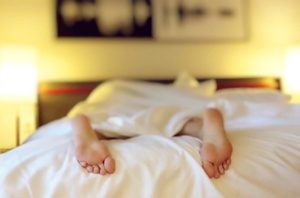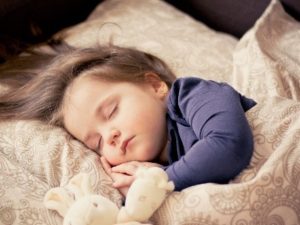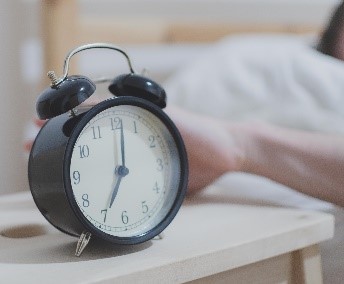Stop Counting Sheep
Insomnia is a common problem for people at all stages of life. In Canada, more than 50% of women and 43% of men have problems falling asleep or staying asleep, and about one-third of Canadians aren’t getting enough sleep [1]  Symptoms of insomnia can include fatigue, trouble concentrating, and mood disturbances [2]. Chronic insomnia can also have a negative impact on your overall health.
Symptoms of insomnia can include fatigue, trouble concentrating, and mood disturbances [2]. Chronic insomnia can also have a negative impact on your overall health.
For individuals who experience any chronic pain, the pain doesn’t just impact their day-to-day life when they’re awake. Chronic pain is a 24-7 problem and can make a good night’s sleep a daunting and difficult prospect. When your chronic pain is leading to difficulties sleeping, there are things you can do to make your life more peaceful.
Sleeping Pains
There is a variety of evidence that suggests sleep and pain are related [3,4]. For people who are on leave from work due to chronic pain, the majority of them also experience sleep disturbance, and not being able to sleep can have a dramatic impact on your ability to function [5]. Insomnia is particularly associated with chronic pain conditions, and insomnia should be addressed as an important component of pain management for those with chronic pain conditions. Although the specific relationships between sleep and chronic pain can vary, it’s important to address the sleep problems in order to treat the chronic pain effectively.
What Can You Do About It?
 Whether your pain means you have difficulties falling asleep or staying asleep, there are things you can do to sleep a little easier. There are several elements of good “sleep hygiene” that you can adapt that may help. Sleep as much as you need to feel healthy and refreshed, but try not to oversleep. Having a regular time to wake up in the morning, regardless of how much sleep you’ve gotten, also helps to keep a regular sleep schedule. You should never be “trying” to sleep, so if you find yourself lying in bed unable to sleep, switching on the light and doing something else until you feel tired again can be helpful. Alcohol and caffeine are known to affect sleep, so it’s important to monitor your intake of both of those substances. Finally, by using the bedroom only for sleep, you have a greater chance of eliminating nighttime distractions, helping you fall asleep faster and stay asleep longer [6].
Whether your pain means you have difficulties falling asleep or staying asleep, there are things you can do to sleep a little easier. There are several elements of good “sleep hygiene” that you can adapt that may help. Sleep as much as you need to feel healthy and refreshed, but try not to oversleep. Having a regular time to wake up in the morning, regardless of how much sleep you’ve gotten, also helps to keep a regular sleep schedule. You should never be “trying” to sleep, so if you find yourself lying in bed unable to sleep, switching on the light and doing something else until you feel tired again can be helpful. Alcohol and caffeine are known to affect sleep, so it’s important to monitor your intake of both of those substances. Finally, by using the bedroom only for sleep, you have a greater chance of eliminating nighttime distractions, helping you fall asleep faster and stay asleep longer [6].
Massage Therapy Can Help
Massage therapy is a great option to help you get a better night’s sleep. Massage therapy can reduce fatigue and improve sleep quality in people at all stages of life, from infants [7,8,9] to the elderly [10], both improving the ability to fall asleep and the quality of sleep [11].
Massage therapy has been shown to increase levels of serotonin which is a precursor to melatonin, the hormone that controls your sleep and wake cycles [12]. Massage therapy not only feels relaxing, it can also be a positive sleep-inducing option.
Massage therapy has also been shown to benefit those with conditions that may keep you awake including cancer [13], psychiatric disorders [14], fibromyalgia [15], migraines [16], and chronic pain [17,18,19,20,21,22] to name a few.
Oftentimes chronic conditions also come with difficulty sleeping, and massage therapy is a great option to improve sleep quality for these patients. Massage therapy can help reduce pain associated with a variety of conditions, which may assist in improved quality of life with a better night’s sleep.
No matter the reason you have difficulty falling asleep or staying asleep, and no matter why you’re experiencing poor sleep quality, massage therapy is a great option to help you get some rest. Ask your RMT how they can help.
References
[1] Chaput, J.P., Wong, S.L., Michaud, Isabelle. (2017). Duration and quality of sleep among Canadians aged 18 to 79. Health Rep, 28(9):28-33. [link]
[2] Institute of Medicine Committee on Sleep Medicine and Research. Colten HR, Altevogt BM, eds. Sleep Disorders and Sleep Deprivation: An Unmet Public Health Problem. Washington, D.C.: The National Academies Press, 2006. [link]
[3] Baker, S., McBeth, J., Chew-Graham, C.A., Wilkie, R. (2017). Musculoskeletal pain and co-morbid insomnia in adults; a population study of the prevalence and impact on restricted social participation. BMC Fam Pract, 18(1):17. [link]
[4] Davin, S., Wilt, J., Covington, E., Scheman, J. (2014). Variability in the relationship between sleep and pain in patients undergoing interdisciplinary rehabilitation for chronic pain. Pain Med, 15(6):1043-1051. [link]
[5] Linder, J., Jansen, G.B., Ekholm, K.S., Ekholm, J. (2014). Relationship between sleep disturbance, pain, depression and functioning in long-term sick-listed patients experiencing difficulty in resuming work. J Rehabil Med, 46(8):798-805. [link]
[6] Irish, L.A., Kline, C.E., Gunn, H.E., Buysse, D.J., Hall, M.H. (2015) The role of sleep hygiene in promoting public health: a review of empirical evidence. Sleep Med Rev, 22:23–36. [link]
[7] Dong, H.Y., Wang, W. (2010). Clinical observations on curative effect of TCM massage on dyssomnia of infants. J Tradit Chin Med, 30(4):299-301. [link]
[8] Field, T., Grizzle, N., Scafidi, F., Abrams, S., & Richardson, S. (1996). Massage therapy for infants of depressed mothers. Infant Behav Devel, 19:109-114. [link]
[9] Field,T. & Hernandez-Reif, M. (2001). Sleep problems in infants decrease following massage therapy. Early Child Dev Care, 168:95-104. [link]
[10] Chen, M.L., Lin, L.C., Wu, S.C., Lin, J.G. (1999). The effectiveness of acupressure in improving the quality of sleep of institutionalized residents. J Gerontol A Biol Sci Med Sci, 54(8):M389-94. [link]
[11] Oliveira, D.S., Hachul, H., Goto, V., Tufik, S., Bittencourt, L.R. (2012). Effect of therapeutic massage on insomnia and climacteric symptoms in postmenopausal women. Climacteric, 15(1):21-29. [link]
[12] Field, T., Hernandez-Rief, M., Diego, M., Schanberg, S., Kuhn, C. (2005). Cortisol decreases and serotonin and dopamine increase following massage therapy. Int J Neurosci, 115(10):1397-1423. [link]
[13] Jacobs, S., Mowbray, C., Cates, L.M., Baylor, A., Gable, C., Skora, E., et al. (2016). Pilot Study of Massage to Improve Sleep and Fatigue in Hospitalized Adolescents With Cancer. Pediatr Blood Cancer, 63(5):880-886. [link]
[14] Field, T., Morrow, C., Valdeon, C., Larson, S., Kuhn, C., Schanberg, S.(1992). Massage reduces anxiety in child and adolescent psychiatric patients. J Am Acad Child Adolesc Psychiatry, 31(1):125-31. [link]
[15] Castro-Sánchez, A.M., Matarán-Peñarrocha, G.A., Granero-Molina, J., Aguilera-Manrique, G., Quesada-Rubio, J.M., Moreno-Lorenzo, C. (2011). Benefits of massage-myofascial release therapy on pain, anxiety, quality of sleep, depression, and quality of life in patients with fibromyalgia. Evid Based Complement Alternat Med, 2011:561753. [link]
[16] Lawler, S.P., Cameron, L.D. (2006). A randomized, controlled trial of massage therapy as a treatment for migraine. Ann Behav Med, 32(1):50-9. [link]
[17] Hernandez-Reif, M., Field, T., Krasnegor, J., Theakston, H. (2001). Lower back pain is reduced and range of motion increased after massage therapy. Int J Neurosci, 106(3-4):131-45. [link]
[18] Kim, S.H., Lee, D.H., Yoon, K.B., An, J.R., Yoon, D.M. (2015). Factors associated with increased risk for clinical insomnia in patients with chronic neck pain. Pain Physician, 18(6):593-598. [link]
[19] Field, T., Hernandes-Reif, M., Diego, M., Fraser, M. (2007). Lower back pain and sleep disturbance are reduced following massage therapy. J Bodyw Mov Ther, 11(2):141-145. [link]
[20] Field, T., Diego, M., Delgado, J., Garcia, D., Funk, C.G. (2011). Hand pain is reduced by massage therapy. Complement Ther Clin Pract, 17(4):226-9. [link]
[21] Jane, S.W., Chen, S.L., Wilkie, D.J., Lin, Y.C., Foreman, S.W., et al. (2011). Effects of massage on pain, mood status, relaxation, and sleep in Taiwanese patients with metastatic bone pain: a randomized clinical trial. Pain, 152(10):2432-42. [link]
[22] Adams, R., White, B., Beckett, C. (2010). The effects of massage therapy on pain management in the acute care setting. Int J Ther Massage Bodywork, 3(1):4-11. [link]


Leave a Comment